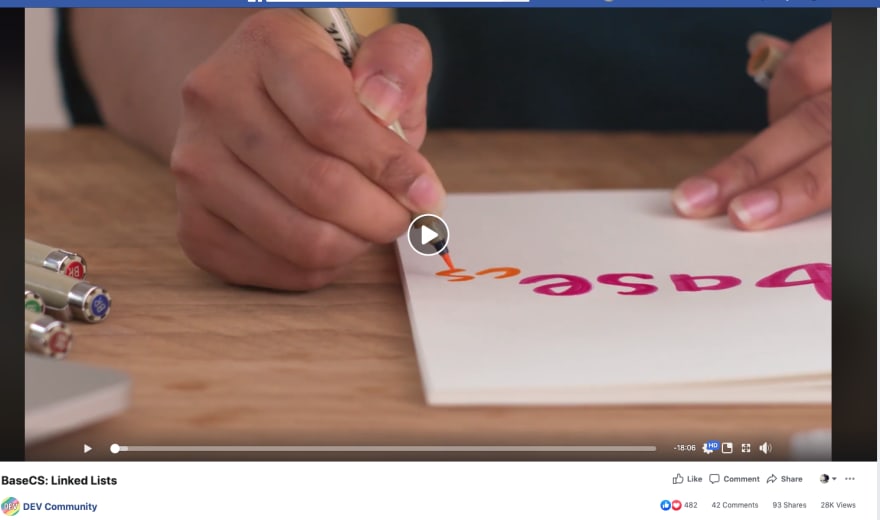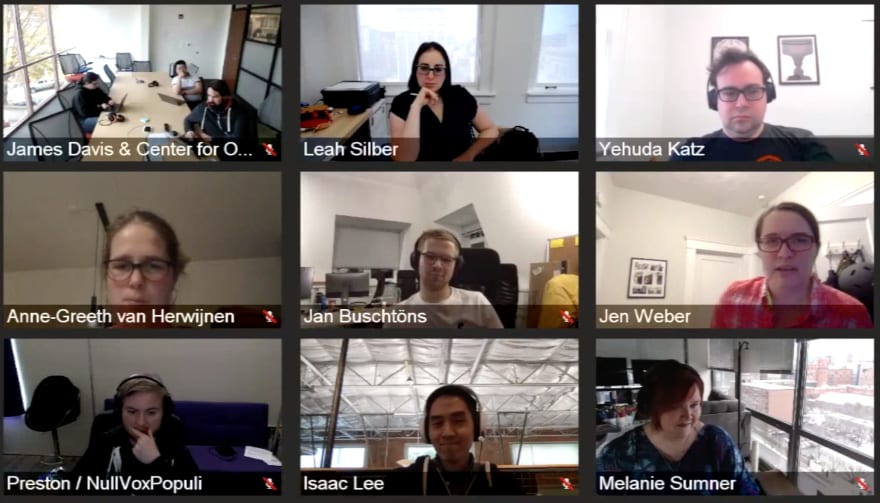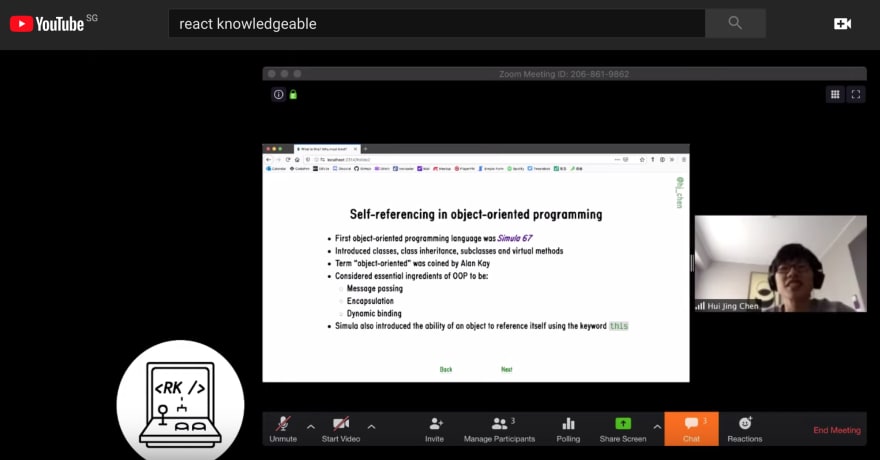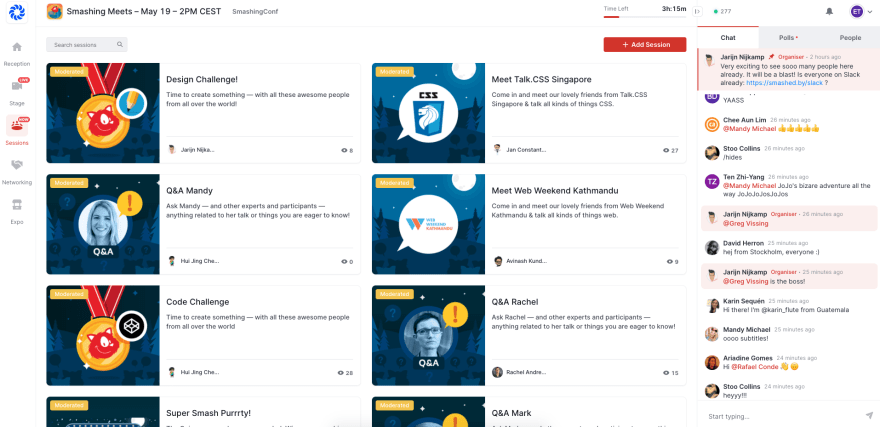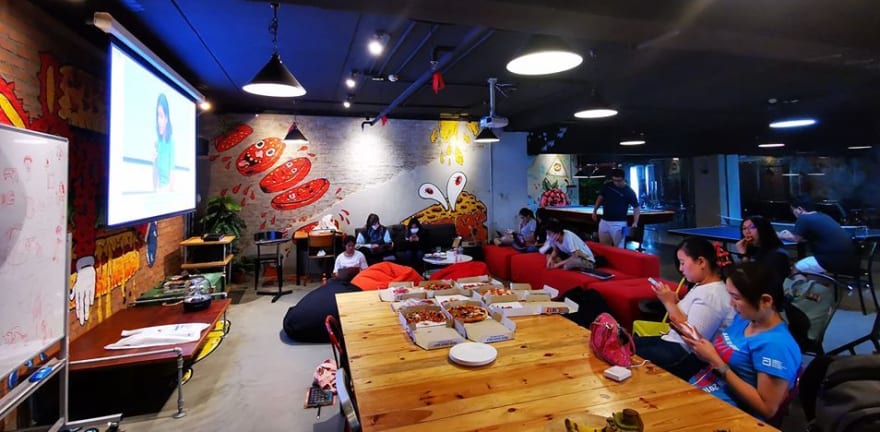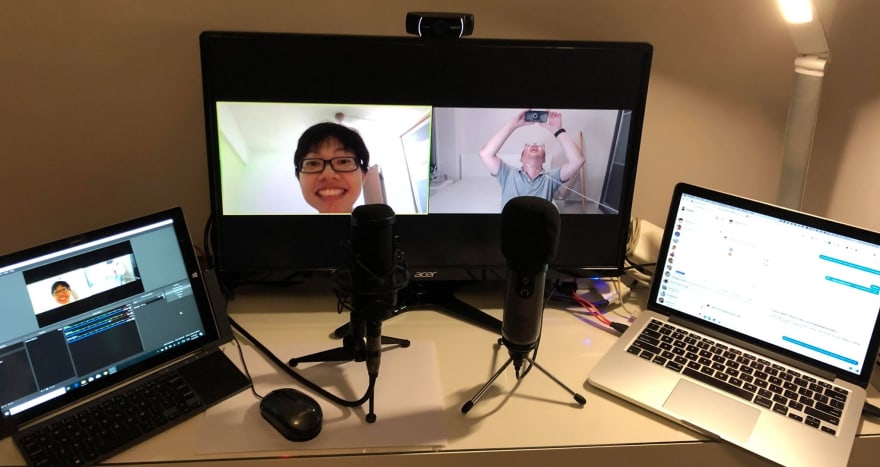Moving your developer events online? Here are some ideas to get started!

Elisha Tan
Posted on March 16, 2020

Overview: I write this series as guidance for community organisers and DevRel folks navigating building dev communities during the coronavirus season. It draws upon from my personal experience and from observing how other communities are tackling this issue.
Hello! I’m Elisha, and I manage developer communities in Asia at a big tech company as my full-time profession while driving gender diversity in tech with TechLadies on the side. While both entities are not affiliated with each other, they both relate to building and growing developer communities.
So as you can imagine that in this COVID-19 season, I face the same problem both professionally and personally - how do I grow and engage with our dev communities when the status quo of in-person activities doesn’t apply in this COVID-19 season?
I started experimenting at work and observing how other developer communities are tackling this problem. This article shares my learnings from corporate-supported communities (Microsoft and Facebook) and grassroots communities such as EmberConf, React Knowledgeable, JuniorDev SG, and SingaporeCSS.
To get started, let’s take a look at the different types of online events.
Psst! All products and tools linked here use non-affiliated links. Please take them as a suggestion, not an endorsement, as YMMV. 🙌
Types of online events
Sharing pre-recorded videos
Online events don’t have to be live. Presentations can be recorded before the event and shared during the event happens. Recording content beforehand ensures the quality of the presentations as speakers can film until they get it right and also avoid connectivity issues.
Tools to pre-record videos:
- Screencasts: QuickTime (free), OBS Studio (free), Loom (free and paid plans)
- Filming: Any camera or phones with camera
- Editing: iMovie (free), OBS Studio (free)
- Publishing: Facebook, Youtube, Vimeo
Video calls
Online events don’t always have to be big and public - they can also be intimate video calls. I find these cosier as everyone is experiencing the event together and chances of anonymity are lower. It also allows for more interactivity... once you get over the multiple “can you hear me?”, “sorry, you go first”, “can someone mute themselves please”. 😂
Free tools for video calls: Zoom, Google Hangouts, Messenger Rooms, Microsoft Teams
Livestreams/Webinars
These events are broadcasts where presenters have full control over the event in terms of event flow and conversations. Audience usually can only communicate via commenting or submitting a question with text. Speakers can either physically be in the same place for filming or take part remotely.
Tools for livestreams: StreamYard (free and paid), Facebook, Youtube, Instagram, Twitch, Zoom (paid), GoToWebinar (paid)
Video calls + livestreams
Debating between having the intimacy of a video call or the reach of a broadcast? Why not both! Using Zoom (paid) and OBS Studio, React Knowledgeable allowed speakers to dial in on Zoom while livestreaming on Youtube. I think this is an excellent way for multiple presenters to join from anywhere while allowing the audience to ask their questions in front of the entire audience via Zoom.
Tools for video valls + livestreams: Zoom (paid), StreamYard (up to 6 speakers), any video call tool + OBS Studio
Full-fledge online conference
Other than meetups, conferences are another great way for developers to meet. All event formats mentioned here can be extended or mix-and-matched into a conference. These conferences usually also use a chat tool such as Discord or Slack to replace the hallway track, allowing the audience to engage with each other or ask a question to speakers after their talks. There’s also NeighbourBot, a Discord bot that matches people randomly for conversations.
Most online conferences are single-track, however tools like Hopin offers multi-track experiences.
Tools to make this magic happen: Event tools listed above, Slack (free), Discord (free), Hopin (paid)
Combining offline and online
Online events don't have to just take place online. People can participate in-person at physical watch parties. For example at Facebook’s recent #TechbyHer Online Conference, several of their Developer Circles community hosted in-person watch parties to ensure viewership. Another example is a recent JuniorDev SG meetup where they restricted the number of in-person attendees while livestreaming the meetup.
Tools to make this magic happen: Event tools listed above + in-person meetups
Manpower for online events
Just like physical events where there are ushers, registration helpers, and emcee etc, there are different roles required to pull off an online event.
Suggested roles:
- Overall Coordinator: As the main decision-maker of the event, this person decides the final layout of the content, the quality of the content, agenda changes (if any), and ensures the event’s success.
- Event Producers: This person helps with all the technical setup for the event and switches the layout during the event as needed
- Guests Handlers: This person ensures that the speakers and panel moderators show up where and when they need to be
- Comments Moderators: This team monitors the livestream comments, hiding inappropriate comments, answering commonly asked questions, and bubble up audience questions to the panelists/speakers.
- Emcee: Guides viewers through the day’s agenda items
Equipment for online events
Depending on the scale of the event, your setup can be an elaborated studio or very simple. You don’t need any fancy equipment to start - simply a laptop (with working microphone and camera) and stable wifi is good enough. I’ve also found it useful to have a table lamp in front of me so that I have enough lighting.
If you’re looking to splurge on equipment, I’ve heard good things about:
Camera:Mevo, Logitech C922
Microphone: BOYA M1, Samson G-Track Pro, Yeti
Side note: Wei from Reach Knowledgeable wrote a fantastic article going onto the equipment and how-to for their online events. Do check it out!
Your turn! What other types of online events have you come across?
I learn so much through observation and I'm always on the lookout on what other types of online events I can adopt. What types of online events did I miss out? What other tools and products will you recommend? I'll love to read them in the comments below!
Coming up: Best practices for online events
In part 2 of this series, I will share some online events best practices. Until then, stay healthy!
Like articles like this? I write about DevRel career advice, building communities, and designing developer programs. You can receive all my articles and more in your inbox when you sign up for my newsletter here: https://bit.ly/updatesfromsha
Image credits:

Posted on March 16, 2020
Join Our Newsletter. No Spam, Only the good stuff.
Sign up to receive the latest update from our blog.
